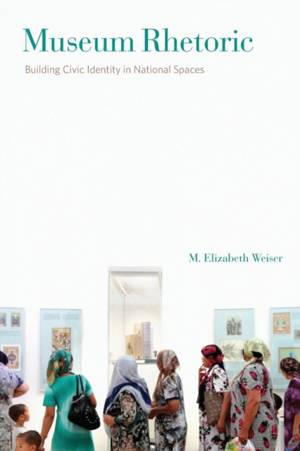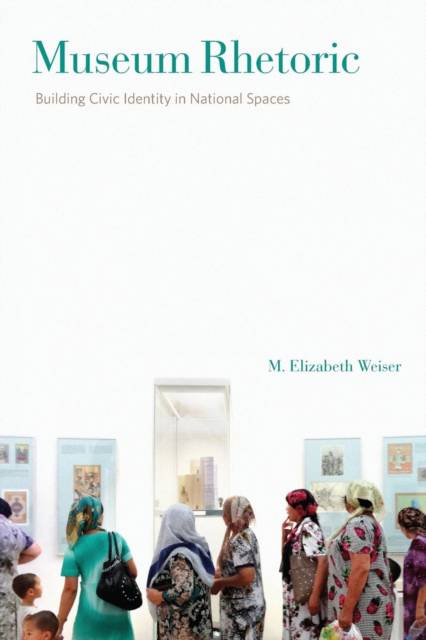
- Afhalen na 1 uur in een winkel met voorraad
- Gratis thuislevering in België vanaf € 30
- Ruim aanbod met 7 miljoen producten
- Afhalen na 1 uur in een winkel met voorraad
- Gratis thuislevering in België vanaf € 30
- Ruim aanbod met 7 miljoen producten
Omschrijving
In today's diverse societies, museums are the primary institutions within the public sphere in which individuals can both engage critical thought and celebrate community. This volume uses the lens of rhetoric to explore the role these societal repositories play in establishing and altering cultural heritage and national identity.
Based on fieldwork conducted in over sixty museums in twenty-two countries across six continents, Museum Rhetoric explores how heritage museum exhibits persuade visitors to unite their own sense of identity with that of the broader civic society and how the latter changes in response. Elizabeth Weiser examines what compels communities, organizations, and nations to create museum spaces, and how museums operate as sites of both civic engagement and rhetorical persuasion. Moving beyond rhetorical explorations of museums as "memory sites," she shows how they intentionally straddle the divides between style and content, intellect and affect, and unity and diversity, and why their portrayal of the past matters to civic life--and particularly studies of nationalism--in the present and future.
Deeply researched and artfully argued, Museum Rhetoric sheds light on the public impact of cultural and aesthetic heritage and opens avenues of inquiry for scholars of museum studies and public history.
Specificaties
Betrokkenen
- Auteur(s):
- Uitgeverij:
Inhoud
- Aantal bladzijden:
- 232
- Taal:
- Engels
- Reeks:
- Reeksnummer:
- nr. 5
Eigenschappen
- Productcode (EAN):
- 9780271079042
- Verschijningsdatum:
- 30/11/2018
- Uitvoering:
- Paperback
- Formaat:
- Trade paperback (VS)
- Afmetingen:
- 152 mm x 229 mm
- Gewicht:
- 349 g

Alleen bij Standaard Boekhandel
Beoordelingen
We publiceren alleen reviews die voldoen aan de voorwaarden voor reviews. Bekijk onze voorwaarden voor reviews.











